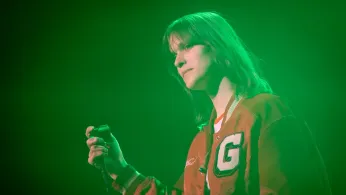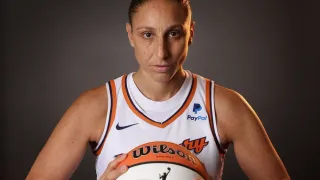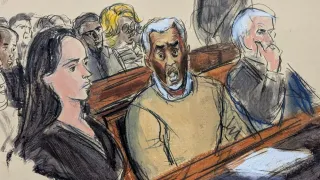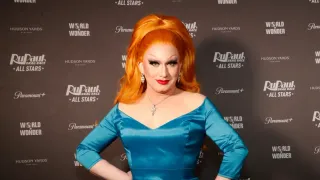
Jul 31
Ethel Cain Addresses Resurfaced Racist Posts and Accountability in Revealing Interview
READ TIME: 3 MIN.
Ethel Cain, the acclaimed singer-songwriter known for her soulful narratives and advocacy within the LGBTQ+ community, has recently confronted a wave of criticism after old social media posts containing racist and offensive content re-emerged online. The controversy began in early July 2025, when screenshots of posts made by Cain—whose legal name is Hayden Anhedönia—between 2017 and 2018 were widely circulated across platforms such as Reddit and X (formerly Twitter). These posts allegedly included racial slurs, xenophobic remarks, and other inflammatory language, as well as references to fat-shaming and insensitive jokes about rape and incest .
The backlash intensified as the posts gained traction, threatening to overshadow Cain’s upcoming album release and her growing reputation as a voice for marginalized communities .
On July 30, 2025, Ethel Cain appeared on The New York Times’ Popcast podcast, where she addressed the controversy in a revealing interview . Cain openly acknowledged the harm caused by her past behavior, taking full responsibility and expressing deep remorse.
“I was 19 and I was entirely aware of what I was saying and that was why I said it,” Cain stated, referencing her deliberate use of provocative and inflammatory language in her youth. “All I can say is that I am truly sorry from the bottom of my heart” . She emphasized that she no longer holds those views and that looking back, she feels shame and regret.
Cain rejected any attempt to excuse her actions, stating, “At the end of the day, I am white… I can take accountability for my actions, but there’s no way for me to fully understand the way it feels to be on the receiving end of them” .
The controversy has prompted wide-ranging conversations within the LGBTQ+ community, where Ethel Cain’s music and presence have held particular resonance. Many LGBTQ+ fans and advocates emphasize the importance of both accountability and restorative justice, noting that public figures—especially white LGBTQ+ artists—must actively confront the intersections of privilege, harm, and solidarity.
Cain’s unambiguous apology, as well as her commitment to using her platform for progress, has been met with a mix of criticism and cautious optimism. Some community members welcome her willingness to address her past without deflection, while others stress that words must be matched by meaningful action and advocacy moving forward .
The singer’s situation illustrates the broader challenges faced by LGBTQ+ public figures navigating visibility, personal growth, and accountability. Cain’s case is a reminder that marginalized identity does not exempt individuals from engaging with structures of racism and harm, and that genuine allyship requires ongoing reflection and reparative work.
During her interview and public statements, Cain also addressed the circumstances under which the posts were resurfaced, alleging that a coordinated campaign of hacking, harassment, and doxxing targeted her and her family. She described the experience as deeply violating, with private accounts compromised and childhood photos leaked. Cain’s team has indicated that legal action is being pursued in response to these breaches .
These developments have further complicated the discussion, with some LGBTQ+ commentators pointing out the need to distinguish between legitimate calls for accountability and targeted harassment. The dual realities of online activism—where both vital criticism and harmful abuse can coexist—underscore the importance of centering the needs and voices of those most affected by harm, while remaining vigilant against tactics that weaponize accountability for personal or political gain.
As Ethel Cain prepares for the release of her new album, she has reiterated her intention to support progress and atonement through concrete actions. In her statement and interview, she committed to prioritizing anti-racist work, amplifying marginalized voices, and holding herself accountable to the communities she seeks to support .
For LGBTQ+ communities and allies, the episode serves as both a cautionary tale and an opportunity for deeper engagement with the principles of restorative justice, intersectionality, and solidarity. As the conversation continues, Cain’s journey may provide a model for honest reflection, public accountability, and the enduring need for growth.






